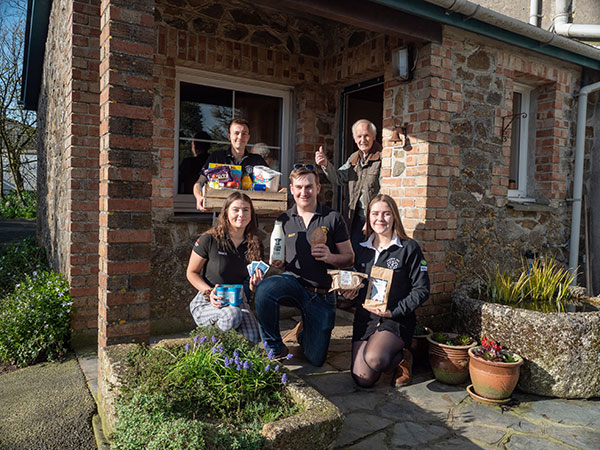The coronavirus pandemic has changed every aspect of our lives. As well as causing many deaths and threatening everyone’s health, it has stopped us working, socialising and leaving our houses.
Food supply has been one of the first areas to be affected. As home delivery firms and supermarkets struggle with the huge demand and stockpiling, farmers, suppliers and communities are stepping in to keep food supply open to the most vulnerable in society.
“As a humanitarian, it’s important to know that we did the right thing,” says William Hill, who has launched FruPro, a non-profit platform set up last Friday (20 March), which aims to put companies like catering suppliers and wholesalers in touch with each other to meet supply needs and end waste.
“We were due to launch FruPro later in the year, but coronavirus struck,” he says. “You can see something coming but you never know what to do until it gets here.”
The platform was launched quickly as a simple online form to help desperate wholesalers that were stuck with stock, which would ordinarily have been supplied to bars and restaurants after they were ordered to close last week. There are also plans to link up with food banks and divert any surplus produce to those in need.
“We are doing it for the good of everybody and making sure that food doesn’t go in the bin,” he adds. “On day one, [catering supplier] Reynolds used it to move 13 pallets of fruit. My overall goal is to enhance the human connection to fresh produce and to do that we have to make sure the supply chain is as efficient as possible.”
Based at London’s Western International wholesale market for fruit and veg, Hill’s family has been in the wholesale produce business for more than 126 years and has taken employees off his other (profit-making) firms to work on FruPro.

As it only launched on Friday, it’s hard to speculate about the long-term, post-Covid 19 future for the platform, although there are evident benefits for closing the loop in terms of food waste.
In the meantime, the platform is helping to keep food moving, something that is especially important considering the impact panic-buying is having on shops and food banks throughout the UK.
In rural areas, it’s the small producers who have started to fill gaps left by overloaded home delivery firms, such as Suffolk family farmers Humdinger Produce and Scottish plastic-free organic dairy Mossgiel Farm, which have both increased their deliveries to those that need it the most.
In Cornwall, the Probus Young Farmers’ Club in Cornwall, which has members as young as 18 years old, is driving supplies to the doorsteps of those self-isolating in the surrounding community.
“What we are doing is very important,” says Sam Oatey, president of the club. “There has to be people who help the elderly and vulnerable. As a Young Farmer organisation this does showcase what we’re all about. We’re here to help the community and take the pressure off people.”

The motto of the club is ‘you don’t have to be a farmer’ – Oatey himself runs a film-making company but comes from a family of farmers, and all members have close links to rural communities. As a result, they are aware of an easily overlooked side-effect of self-isolation in rural places: loneliness.
“The older generation are obviously at risk,” says Oatey. “They could be at home for 24 hours a day – think how lonely and isolating that must be, and when you consider they could be alone for three or four months self-isolating: it’s crazy.
“That’s why we’re offering to be on the end of the phone,” he adds. “To get people to contact us if they want to have a chat and speak to somebody. It’s getting more serious now and people are starting to realise the severity. It’s getting worse and there’s going to be more of a demand for us on the phone.”
The club began by reaching out to followers on social media and, as Hill’s FruPro shows, online initiatives could well be a lifesaver in this battle against an invisible killer.
They both demonstrate that being connected to communities and taking collective action is going to be critical for food supply, and for survival, in the coming weeks and months.
Please let us know in the comments of other similar organisations in your community.












0 Comments